
Muse & Mastery
Hosted by Aliya Cheyanne, Muse & Mastery is a digital sanctuary for creative thinkers, makers, and seekers. Each episode explores how we can live, create, and evolve in alignment with our purpose.
Muse & Mastery
The Revolutionary Power of Floriculture ft. BLK FLWR MRKT Founder, Kehmari Norman | Ep. 83
Flowers are vehicles for storytelling, resistance, and cultural connection. On this episode, we speak with Black Flower Market (BLK FLWR MRKT) Founder Kehmari Norman about the profound power of floriculture as both art form and conversation starter.
Kehmari's relationship with plants began during her college years at Temple University, where financial necessity sparked curiosity about growing her own food. Inspired by urban agriculture initiatives and the teachings of Dr. Sebi, she developed a deep appreciation for the practical and philosophical dimensions of gardening. This foundation eventually blossomed into Black Flower Market, a floral design firm that transcends conventional boundaries by centering storytelling and cultural exchange.
Through her workshops and installations, Kimari creates spaces where participants discover shared traditions around herbs and flowers, building what she calls "proverbial bridges" between different backgrounds and experiences. One remarkable example is her "Ceasefire" installation at Art in Bloom 2024, where she used white iris (Palestine's national flower) and cotton balls to spark conversations about global conflicts. This gentle yet powerful form of resistance drew crowds in Washington DC's affluent DuPont Circle, demonstrating how beauty can become a vehicle for meaningful dialogue.
Beyond their symbolic power, flowers have been profound teachers in Kehmari's personal journey. She speaks eloquently about learning seasonality from her botanical companions – understanding that like plants, humans need periods of dormancy and rejuvenation.
For those inspired to deepen their relationship with plants, Kehmari suggests starting with community gardens, which serve as gateways not only to horticultural skills but also to civic engagement and neighborhood connections. She also shares personal wellness practices involving plants, from eucalyptus shower bunches to dandelion tea for hormonal health.
Follow Kehmari's work at www.blackflowermarket.com or @BLKFLWRMRKT on IG, and join the growing community of "flower buds" exploring the intersection of nature, culture, & social change.
Watch this episode on YouTube!
Related Episode:
Enjoy the episode?
- Share it with friends!
- Send a voice note or text!
- Rate & review the podcast!
Follow @museandmasterypod on your favorite SM platforms!
Watch full interviews here on YouTube!
Join me over on Substack!
Check out my favorite brands and snag a discount!
Grab a guided journal here!
Are you a creative, solopreneur or entrepreneur who’d like to be featured on Muse & Mastery? Let me know here!
Hosted by Buzzsprout. See the Buzzsprout - Privacy Policy here.
Hi everyone, welcome back to the show. I'm your host, aaliyah Cheyenne, and I'm so excited today to be joined by Kimari Norman. Hi Kimari.
Aliya Cheyanne:Hey Flowerbeds, hey Aaliyah, oh, I love that I'm so excited to have you on the show today. So I always love to share how I've met someone or how I know of their work, and I was just telling Kimari and reminding her that a little while back, color Girls Liberation Lab by Jen Roberts, who has been a guest on the show before, had a skip day retreat at Balian Springs, which is a spa that I love, and Kumari came in with her incredible business, black Flower Market, and did a beautiful workshop with me and all of the guests there. We had an opportunity to make I think they were smudge sticks or sage sticks with flowers and herbs and, oh just, it was really powerful.
Aliya Cheyanne:I brought my grandmother and, as someone who yes, who loves like gardening and flowers and herbs and all that good stuff? She loved it too, so it was a really beautiful experience that I still remember to this day. So I'm so honored to have you on the show. Thank you.
Kehmari Norman:That warms my heart, especially with Granny there. That is so so sweet.
Aliya Cheyanne:Yes, I take her everywhere. Um, I would love to turn it over to you, for you to share a little bit more with the listeners who you are in the world today and how you'd like to be known.
Kehmari Norman:Yes, yes, so I'm Kimari, Kimari Norman, and I am a business owner and creative in the mid-Atlantic region of America, specifically in my hometown, Washington DC, and in the world right now I'm a gardener again, a creative, and really honing into my businesswoman persona as well.
Aliya Cheyanne:Yes, I love that. I love it. I love to see it. I'm so grateful to have experienced just a little bit of your work as well, and I'm so excited to dig into our conversation so folks can hear more about that. But first I kind of want to take it a little bit of a step back, talk a little bit more about how you got to this place of being a businesswoman and owning Black Flower Market. I know that flowers and herbs mean a lot of different things to a lot of different people, and I'd love to talk more about your experience with them and what kind of sparked your connection to them and how that's evolved over time for you.
Kehmari Norman:Yeah, that's such a great question. My intentional start and start of my relationship with flowers and herbs began as a college student, as a sophomore. At Sophomore at Temple University, I found a space where I can merge my studies and my trade and set design in the theater school at Temple with my growing passion of agriculture. So at that time in my life, again I was a sophomore, maybe about 18, 18 or 19. Again, I was a sophomore, maybe about 18, 18 or 19.
Kehmari Norman:And as a first generation college student, I had no idea of the financial responsibility that college was and almost the financial burden that it can create.
Kehmari Norman:And so, for lack of better words, I was broke as a joke. I was very minimalist when it came to money and didn't really have a lot of people to ask. And when I was introduced to gardening through one of my colleagues, alex Epstein, who started a nonprofit called Philly Urban Creators, I was like wide-eyed and so open to learn, open to do, not only because of like out of necessity. Like out of necessity, like I really wanted to um use as many resources that I had, but also out of like curiosity a friend of mine at the time, his older sister, was studying under Dr Sebi in Miami. He had like an institute in Miami and the stories that she would share and that he would tell about her experience was just so inspiring. I was like just starry-eyed at the work that Dr Sebi was doing through plants and herbs and I was inspired to at least like experience it in my own little way in North Philly by growing my own herbs, growing my own vegetables and taking the initiative to eat them and trust what would come from that.
Aliya Cheyanne:Yeah, yeah, oh, my gosh, you said so much there. That's really powerful. Thank you for sharing your story. I feel like we come from a generation and there are a lot of folks coming up now to a school that really don't understand the financial burden and responsibility like of school, like taking on student loans and stuff like that be vulnerable about. That is really important because it might offer perspective to someone else who's listening, and I love these pieces of inspiration from different businesses, nonprofits, dr Sebi and everyone around you to really encourage you and inspire you to experiment with something new and develop a love and a passion for it. So thank you for sharing that. So I want to talk a little bit more about Black Flower Market, because we've mentioned the name a couple times but everyone who's listening might not know what that is, and it's more than just flowers. You have a background in creative design, like all these different things, so can you tell us more about Black Flower Market? Yes, yes.
Kehmari Norman:Black Flower Market is this project where I merge people's cultures and floriculture and do workshops through experiences like brand activations or installations, for example. It's a space where we really get to tell the truth about flowers and experience the truth of flowers and herbs as a connector, a glue of humanity, that value. Because it's a space where we talk about familial traditions and how herbs and flowers are dominant there. When one flower bud would share how their elder in their family would use, let's say, clove, for example, for a coat, another flower bud will express how their auntie would use the same herb, but for a different reason, and it just creates these like proverbial bridges that makes us a lot more closer than we could, we could assume. So Black Flower Market is like a living, growing project. I'm still like defining what it is in its entirety, but at its core it's a floral design firm based in Washington DC and we tell stories and make moments with flowers.
Aliya Cheyanne:Yes, yes, that's exactly what I think about the storytelling. I remember getting chills during the smudge workshop, especially having my grandmother there, because she knows a lot about herbs and flowers and listening to you talk about them, listening to other flower buds in the room share more about their experiences, what they learned from their mothers, their grandmothers it's just really like it connects you to the past, the present and the future in such a beautiful way. And I was actually going to ask you like what has been sort of maybe a favorite exhibition or event that you've like curated with your work, or maybe one that you're dreaming up that you hope to happen soon? I would love to. I'm so curious about that.
Kehmari Norman:Oh, yay, I love this question, so one of my past favorites or standout moments and honestly, I love this question so much because I feel like sometimes I just go from project to project to project and I don't value the time of like just rest and just like recognizing the moments that passed. But recently I did sit with an installation that I did last year, in 2024, for Art in Bloom, and Art in Bloom is like an annual flower festival based in DC. It's in this like historical museum in DuPont Circle and for anyone that's not familiar with Washington DC, dupont Circle is like a pretty affluent neighborhood. You have neighbors like you know Jeff Bezos, oh Lord. Like you have these Howe Worth residents that live in this part of the district and the museum that Art and Bloom is housed is called Anderson House. It's a huge reflection of the wealth and just the overall feel of the community. So it's super like bougie, and you know you want to like clutch your pearls a little bit, but I it was my second time hosting an installation there with nearly like 40 other floors throughout the district and the core of Black Flower Market again is making moments and telling stories using flowers and the installation that I did.
Kehmari Norman:There it was titled Ceasefire, there it was titled Ceasefire and it was about a six foot tall banner white banner made of florals, made of white iris and hydrangea, and even some natural cotton balls were in there. And I used those specific flowers, like the white iris, which is the national flower of Palestine, and the cotton ball, which is such a prominent herb in Black history, black American history, specifically to use those flowers and their cultural values to kind of elicit conversation, like cultural values to kind of elicit conversation. Had folks talk about what's happening in the world. At that time it was March 2024, just maybe about eight months or so into the war in Gaza. My goal again was just to really invite conversation. I didn't realize how impactful the installation was to the DC community.
Aliya Cheyanne:There was like a line for people to check it out and take photos with it and I really attest that, to like the political heaviness of the world at that time and still today and allowing flowers to using the word gentle. But it's still an act of resistance, an act of protest in a lot of ways too, and I think that's such a beautiful way to do it and to spark conversation and I'm so happy to hear that it was well received, that people were lining up to see it and talk about it and share it and talk about it and share it, and even your choices for what you included to make the banner out of flowers, like the connection and using cotton of all things too, especially because it's a connection to our past as well. And I say often in personal conversations too and in non-personal conversations, that resistance and struggles and civil disobedience and civil rights here in the United States is very closely tied to Palestinian liberation.
Kehmari Norman:You know our memories are intrinsically linked. A thousand percent, a thousand percent. So yeah, I was honored to be able to at least have folks again receive it and talk about it.
Aliya Cheyanne:So yeah, that was super special gardening through flowers, and I feel like art is such a powerful medium for a number of different things, sparking conversation, revolution, resistance, all of these different things too. And I'm very curious for you personally. You know, we know that flowers can be beautiful. They can mean a lot of things beyond that. They can be medicinal. They can mean a lot of things beyond that. But when you think about your work and Black Flower Market, like your mission, in terms of the message that you hope people receive when they see your work, what you hope they take away from it, I'm very, very curious about that as well.
Kehmari Norman:Yes, the mission, the mission, the mission is to really connect, to converse. The name of my business is Black Flower Market because I am creating this world of flowers and this world of commerce through my specific Black perspective. But it's also Black Flower Market because it's like this underground, kind of under the brow, under the radar, type of storytelling that we provide, like the aesthetic it can overshadow the story if you're not careful enough to be mindful of the story. And so, yeah, my largest mission with my business is to connect folks and really again spark those conversations, no matter how small or how like impactful they may be to other people, really like creating like these intimate moments within humanity. That's my largest goal.
Aliya Cheyanne:Yeah, and it's such a big one, and I think that you are executing that perfectly and beautifully in your own way. I know it's continuing to evolve, you're continuing to figure things out, you're growing, but even the impact you've had on me as one person who's only been able to attend one thing so far, like it's a lasting memory for me, and I I feel, like your, your work is definitely touching everyone who sees it. Thank you for sharing that with us and I love witnessing you. You know make your mission happen and live in your purpose, so it's a beautiful thing.
Kehmari Norman:Thank you, thank you so much. Yeah, so it's a beautiful thing, thank you. Thank you so much.
Aliya Cheyanne:Yeah, so I know we've talked about the storytelling component. We've talked a little bit about how different people have expressed how their families, their familial lines, have used different herbs for different things. But I also know that flowers and herbs have their own seasons. Like there are seasons for bloom, there are seasons when they're dormant, resting to come alive again, and I'm very curious to learn from you how you've learned from flowers and herbs in your work. Have they taught you anything about creativity, patience, alignment, like you know anything like that?
Kehmari Norman:Yes, as flowers are such great, great teachers. I think I've been the most obedient to my lessons from flowers in this past season, particularly in like the flow, that circadian flow of things and really respecting that everything has a place and time. So my largest lesson is what you hit on is seasonality and allowing myself to rest, yes to rest, yes To rest, like even how like that message is reflected in the word in so many different ways Just sitting my little bed down, scheduling time for almost everything and honoring that schedule, honoring that ritual that I make for myself. That has been such a pivotal lesson that I've learned from flowers.
Aliya Cheyanne:Yes, and that's a beautiful lesson Like we all need rest. I feel like I am one of those people who feel like we go against nature so much. We need to be doing what the seasons do, like we should not be grinding in the dead of winter, like coming alive when things are blooming in spring, like we go against nature so much. So I love to see Black women, especially, resting. Amen, and yeah, so I'm very happy to hear that for you and that's something that you've learned from them. And you mentioned the word ritual. Like there are so many spiritual traditions, too, that are tied to flowers and herbs, and I think that's really powerful and important. So thank you for sharing that.
Kehmari Norman:It's my pleasure. Thank you for asking that question. It's so important.
Aliya Cheyanne:So thank you for sharing that. It's my pleasure. Thank you for asking that question. It's so important. Yeah, okay, so I know firsthand that running a business is not all glitz and glamour. Like there are highs and lows. Entrepreneurship is for many people, but it's not for every person. So I would love to talk about, like to the extent that you're comfortable like, some of your biggest joys in this work, and then also some you know tough challenges that you've overcome with Black Flower Market. Yeah, let's start with your biggest joys.
Kehmari Norman:Biggest joys hands down are the relationships Relationships, relationships, relationships, relationships, relationships, relationships. I cannot stress that enough. That has been one of, like, the largest blessings of black flower market is meeting so many incredible people, um, who are just blessings. They're just angels. You are. Are you included? Because, truly, truly, the answers to everything is yes and amen. And so when I ask for things, let's say how you are a blessing in my life, for example, how this relationship is so appreciated, is so appreciated.
Kehmari Norman:I've been asking and I've been like writing down and wanting to one, express myself more, just articulate myself freely, and two, build intimacy just every day with everyone, and so to me, that means like just kind of moving away from a transactional relationship with everybody.
Kehmari Norman:I don't want to have a transactional relationship with anyone unless it's like blatantly sick, and so with that one of mine, and even just putting it out in the world by writing it in a journal, right, wow, you emailed me asking me to join your business and your podcast, which is centered on communication and community, and so that's how God has is one way God really works in my life.
Kehmari Norman:Again, his answers to me are yes and amen, and so when I ask for something, they always come and they always happen. It's just about me recognizing those blessings. So relationships have been like the answers to most of my wants and goals, honestly, and on the flip side of that, some of, like, my hardest challenges and heartbreaks in business has been strategies on relationship building. So taking the time to nurture a relationship and understanding what it is and what is not, so that it can be respected and valued for literally what it truly is. So some relationships I've given so much and I just didn't articulate what I needed in return or what I wanted in return, and so really learning how to nurture relationships like spending the time that's necessary to build them, asking the questions and just being vulnerable enough to understand what I'm doing with this person or with these people.
Aliya Cheyanne:And so yeah, yeah that's really moving, oh my gosh. Well, that touched my heart in a lot of ways. So I love that. Scripting is something that supports you, like writing down in your journal and like seeing that come to life. Like that's really beautiful. I resonate a lot with that and I feel that energy in terms of like calling in aligned relationships. So I think that's really powerful.
Aliya Cheyanne:And I think the toughest part of one of the toughest parts is like being comfortable with asking for help and being vulnerable enough to share what you need. Like that is such a challenge and I noticed that especially especially for us, for Black women. Oh my gosh. You know we might be leading in the category of starting businesses, but you know, when you break down and analyze the types of businesses, a lot of Black women are struggling and I think it goes back. There are a million factors for that, but part of it, too, for us, is being comfortable with being vulnerable enough to ask for help.
Aliya Cheyanne:And I think what you said about recognizing what different role different relationships play in our lives what we can give, but also what we are able to receive being open to receive is so powerful. But also just staying connected, even in small ways Like there are. So there are so many relationships where I may speak to folks and stay connected to them more frequently. There are other ones it's not as frequently, maybe it's quarterly and there's a catch up at hey, I'm doing this. Keep me in mind for this Knowing and recognizing different people, for how we can support each other and being comfortable with saying, hey, I need help or hey, I would love to be considered for this.
Aliya Cheyanne:Please keep me in mind. So many things happen because there are people in rooms we might not be a part of who remember us and are mentioning our names. It's so powerful what you said and it breaks my heart to know that you've had many, like you know, big heartbreaks with your business. But I also know that the work you're doing is so powerful and transformative that I will continue to mend with time and I know more aligned relationships will fall in place for you. So I hope to see that bloom A thousand percent.
Kehmari Norman:I receive that. Thank you so much, Aaliyah.
Aliya Cheyanne:Yeah, I think that's really powerful. So I don't have the best green thumb in the world. My grandma does, though she has a great green thumb. I'm trying to learn and get better. I'm trying to put more effort in the garden with her and become a better gardener and a better plant mom. I'm doing my best. It could be flowers. It could be wanting to grow their own herbs. It could be just like a creative, a fun, creative outlet, Like is there any advice that you would give them for, you know, finding their own path in the space and trusting the process?
Kehmari Norman:Absolutely so, when I'm not running my business, black Flower Market. I had the pleasure and honor of being a public servant working for the District of Columbia in DC's Parks and Recreation, which is one of DC's largest landowning agencies, and we have over 40 community gardens throughout the city of the District of Columbia, of the District of Columbia, and I would encourage folks to tap into their local city or towns or counties community gardens database. You can volunteer with a community garden or you can take the rain and get your own plot. Honestly, I started gardening at 19. I know some fabulous gardeners who are like five years old.
Kehmari Norman:I was a little bit like behind, I was a little bit late to the game, but honestly, I take that back. There's no, you're never too late to start gardening. It's just like riding a bike. Once you learn these skills, it's almost hard to forget them and it's such a meditative practice. I would encourage everyone to, if you're in DC, definitely check out DPR Community Gardens and tap in with me. We have a few gardens throughout the city that need plots holders. Rather, they have plots that are available and if you are just out here in this world, in these streets, just Google your local community garden and take the initiative to ask how you can be of service. No gardener says no, I don't need help Literally. So it's all about just taking the time out and spending the time. You'll get better each and every time.
Aliya Cheyanne:Yeah, that's so beautiful, yeah, that's really powerful too. I think that's so cool. There's a big park protected park that's not far from where I am, and every now and then there are like community cleanups and like there are ways to get involved locally. And actually in my neighborhood a new community garden came online last year. Not 100% sure what's going on with it right now, but every time I pass by like I try to see if someone's like there, like if it's open yet like what's going on there, and that'll be a great opportunity to get involved. I know my grandmother wants to too.
Kehmari Norman:Aaliyah, that's such a great point because gardening is kind of like a gateway space to get into your local governance and learning like who's like your council members and your A&C members and who are the church leaders, the community that you are, because there's so many stakeholders in that plot of land that's likely owned by the city or the state or some private entity. Yeah, it just opens so many different conversations to help you get more like implanted into your community. So I definitely welcome that.
Aliya Cheyanne:Yeah, I think that's powerful too and it's a way to show up for and in your community now, especially during this time and in this political climate. Like I think gardening and, you know, getting involved with the community and learning about, like your local stakeholders, the people around you, is really important, so important. Yeah, yeah, there's that, okay. So one of the sweetest things I love to see or hear in the world is whenever you say, hey, flower bud, can you talk about, like, where that came from? Cause it's, I noticed it's like you're greeting for emails, so you, you greeted the show with that. Like I would love to hear about the origin story for that.
Kehmari Norman:My gosh. That tickles me. Honestly, aaliyah, I cannot think of the birthplace for hey Flower Buds. I think it kind of rolled off the tongue. And in my past life, past life in high school in high school I wrote poetry very often, and in middle school, since I was a child, honestly, and in college I dibble-dibble.
Aliya Cheyanne:I dibbled into rapping.
Kehmari Norman:So I'm a bit of a wordsmith. Yeah, I believe it. Yes, so it kind of just rolled off the tongue and I just stuck with it. I've trademarked it.
Aliya Cheyanne:Yeah, good, good. I think it's so sweet.
Aliya Cheyanne:I love to hear it and I love to see it, I've been like oh me, yes, and it's just the cutest thing I like. Um, so before we go because I know we're getting at time very soon I would just love to ask you a couple of like last questions about just herbs and flowers, like things that you do for yourself, like I think community care and self-care is so important, especially given this time, especially as an entrepreneur. So I would love to know, like, what are some of your favorite herbs or flowers for? Like, maybe, if you want to soothe, like you're having a relaxing day at home, is there anything that you might use in a tea or anything you might like to see around you that helps you feel comfortable and relaxed and soothed?
Kehmari Norman:Love this question. I'll start with a shameless plug. Okay, yes, the eucalyptus shower bunch, the Black Flower Market eucalyptus shower bunch, is transformative to like my self-care routine. Whenever I have like a fresh eucalyptus shower bunch in the shower, I just I stay until the water turns cold, like it's just such a long meditative space in the shower where I'm either like having this mini concert or I'm listening to the word, where I'm just kind of just present in this space. So the eucalyptus shower budge is one one of my favorite tools for relaxation.
Kehmari Norman:Um, tea, the tea that changed my life is a weed that almost or there's so many people in this region, the mid-Atlantic region of America they just detest. It's dandelion. Yeah, oh, my gosh, dandelion Tea. I was introduced to Dandelion Tea maybe about when I was 18, around the same time that I was getting into gardening. One of Dr Sebi's students, chef Aki she's based in Atlanta and her and her team were like very ahead of the game when it came to holistic and natural medicines, and so she introduced me to dandelion and you know my menstrual cycle it. It allowed me to take control of my menstrual cycle. Actually, I did like a fast, just a short fast three days with just water, teas and nuts and fruits actually, and my main source of like a liquid was the dandelion tea.
Aliya Cheyanne:Wow.
Kehmari Norman:Hot or cold, and I noticed that when I would be mindful of my intake, like a week or two before my menstrual cycle, I can like allow my cycle to last like three days or two days, like it's really powerful for like our reproductive system and it also transformed my skin.
Aliya Cheyanne:It's great for like like hormonal health.
Kehmari Norman:Yes, dandelion tea and it's such like an abundant weed around us like, yes, used every part of that plant. Um, and your another point that really brings me so much peace is organization. Yeah, I used to like, growing up, I'm an only child and so growing up I always had my own space and I used to pride myself on being able to work and like organize chaos. Yeah, yes, work in like organized chaos. Yeah, like I was really convinced myself that I was good, like I could function in a mess because I knew where I left my mess. Yeah, girl, I get it. Girl, I get it. So in this era of my life, I get so much peace and clarity from a clean space and having things in places where they accentuate function.
Aliya Cheyanne:Yeah, so, yes, that has been pivotal in the last two years for me. Yes, all of that is so important. Shout out to the eucalyptus bunch for the shower, because I you know, not a shameless plug, it's just a plug Like those are great. Like, especially when the shower is hot and steaming and you have the, the smell of the. Yeah, like those are really good and I've actually had so. Amber Holmes, who is a good friend of Jen's, who owns Isol Naturals, has been on the show too and she's talked about dandelion too, and it's so good for heart health. I didn't realize that it's good for, like you know, skin clearing up. It makes sense that it would impact your menstrual cycle, because if it's good for heart health and your blood, like I imagine, yeah, so that's really. That's informative and, like, as a PCOS girly, like I'm always trying to figure out the hormonal stuff, so-.
Kehmari Norman:Yes, same same. I would really recommend dandelion into your daily, like your daily T regimen for sure.
Aliya Cheyanne:Yeah, I think that's really powerful. But yeah, a few things in common, girl. Like back in the day I used to do a little poetry too. You know I don't do it too much anymore, so I did not rap, but I used to write me a little poetry every now and then, so I love to hear that. And big on the organization thing If my space is not organized and clutter free, it's not organized chaos, it's just chaos, and I can't.
Aliya Cheyanne:I can't so I get you on that, I feel you on that. Oh my gosh, this is so good. Yeah, so we're nearing the end and I don't want to leave, but this was amazing this is great.
Aliya Cheyanne:I loved hearing from you. I'm glad that you've had this opportunity to express yourself, because the world needs to hear from you. You're so brilliant, you're doing incredible work and I've loved our conversation. And I've mentioned on this show a few times in the past that there's a foraging group that I occasionally go out with, like you know, when the weather's nice, because I ain't going out there when it's too cold, it's too rainy, but, you know, when it's not too hot.
Aliya Cheyanne:I've gone with them on foraging adventures, like all over New York, and it's been so meaningful for me to learn from everyone else around me who's like, really deep into foraging, about how to identify different plants and you know what you can eat, what you can't, what's good for this, what's good for that, and it's just been a way for me to reconnect with nature. Um, and there are so many folks who just I don't know. It just lights us up to reconnect with nature in various ways. So this was a big reminder for that to stay connected to flowers, to herbs, to earth and all of that. So that's been really beautiful. So, thank you, thank you. Okay, can you let folks know where to support your work, where to buy products where to book you for an event like, or an exhibition or installation? Can you let folks know where to find you?
Kehmari Norman:Yes, yes, you can find me at wwwblackflowermarketcom, and you can also find me online on Instagram. Rather, our handle is spelled phonetically. It's spelled B-L-K-F-L-W-R-M-R-K-T, and I would love to connect.
Aliya Cheyanne:Yes, and I'll make sure to link all of that in the show notes as well, so it's easy for folks to find you. Kumari, thank you so much. This is such a rich conversation. I've loved chatting with you and I'm so grateful we had a chance to talk Aaliyah you are such a light in this world.
Kehmari Norman:Thank you so much for having me. Thank you.
Podcasts we love
Check out these other fine podcasts recommended by us, not an algorithm.

ShxtsNGigs
shxtsngigs
LOVERS by shan
LOVERS by shan
Can't Afford Therapy
Can't Afford Therapy Podcast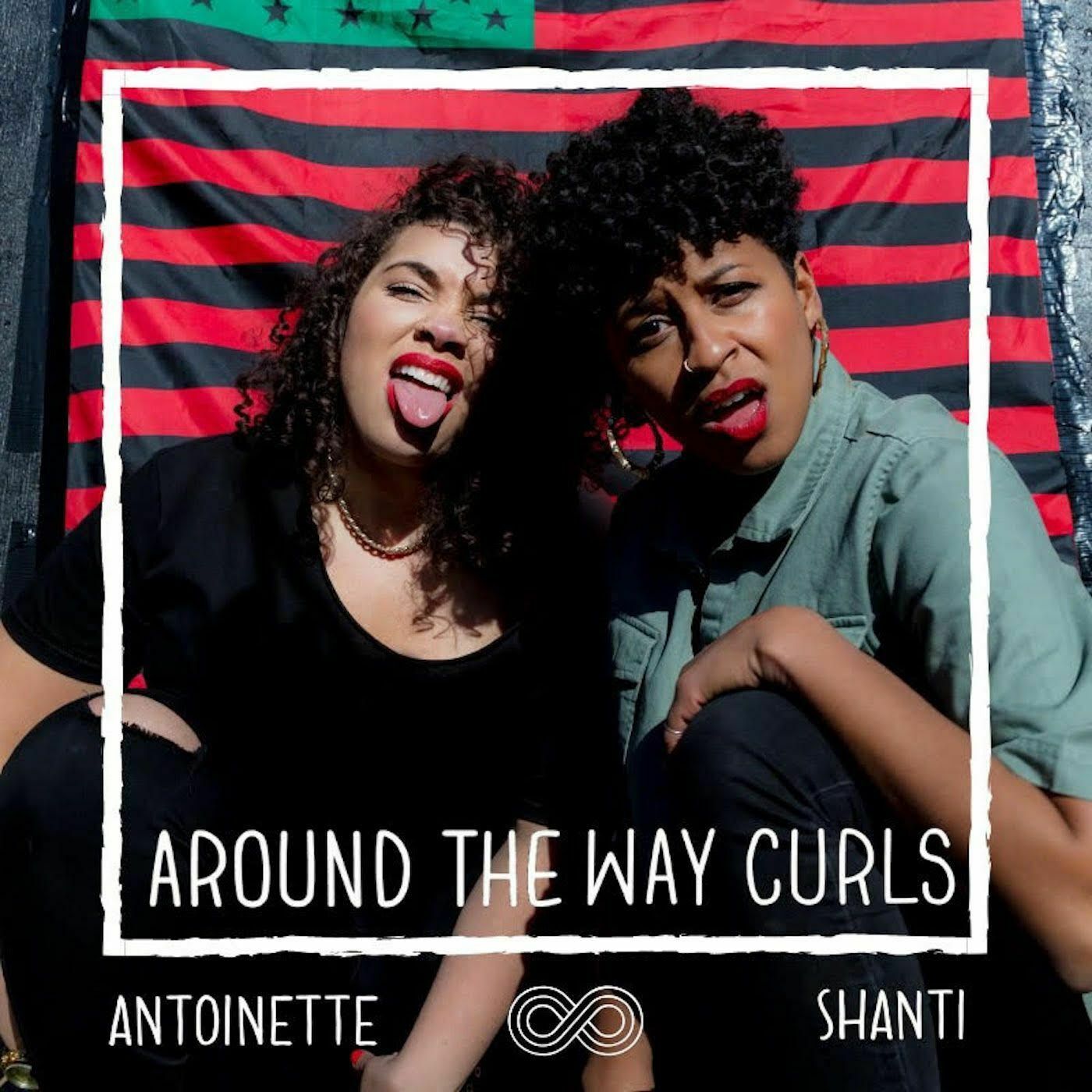
Around The Way Curls
Antoinette Lee & Shanti Mayers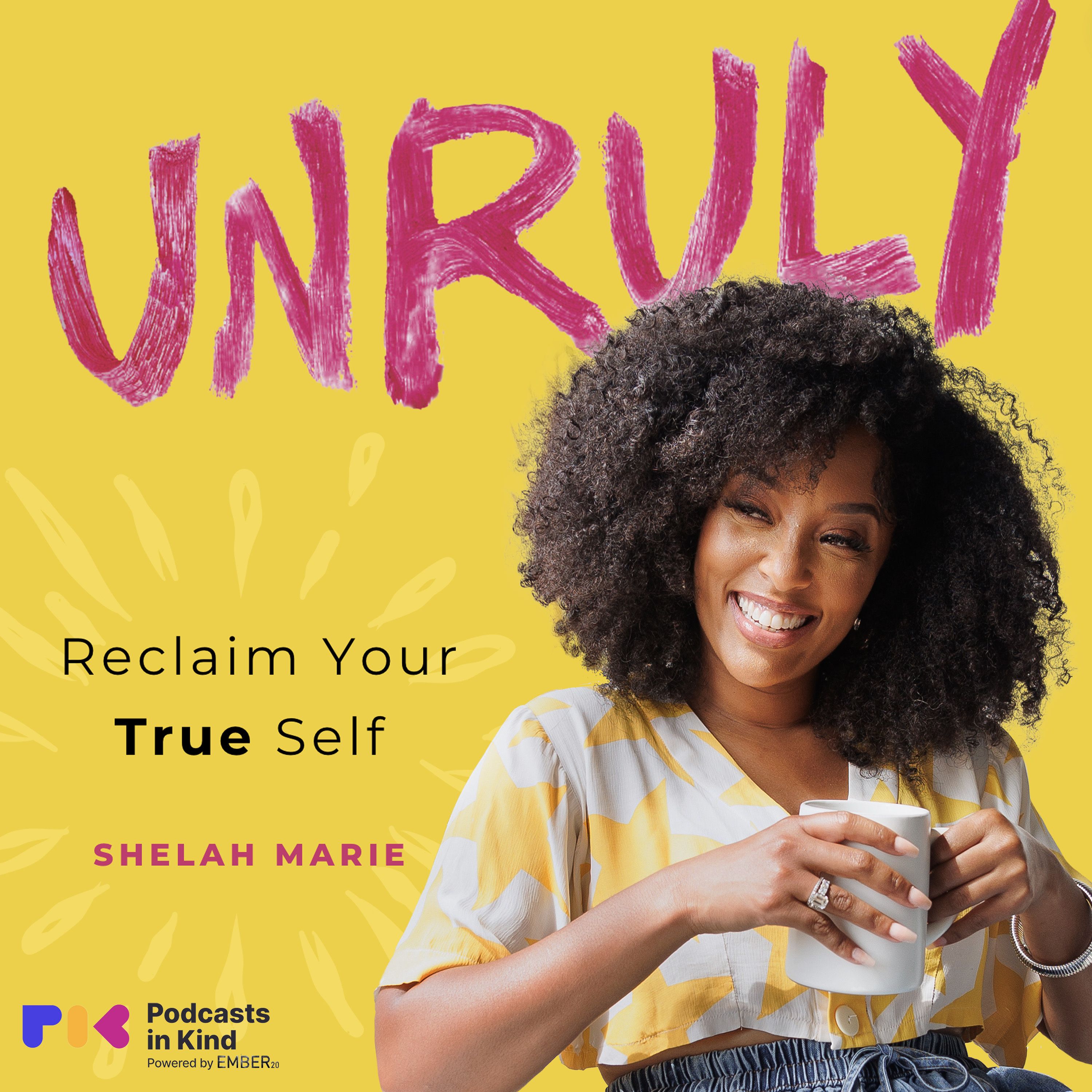
UNRULY WITH SHELAH MARIE
UNRULY WITH SHELAH MARIE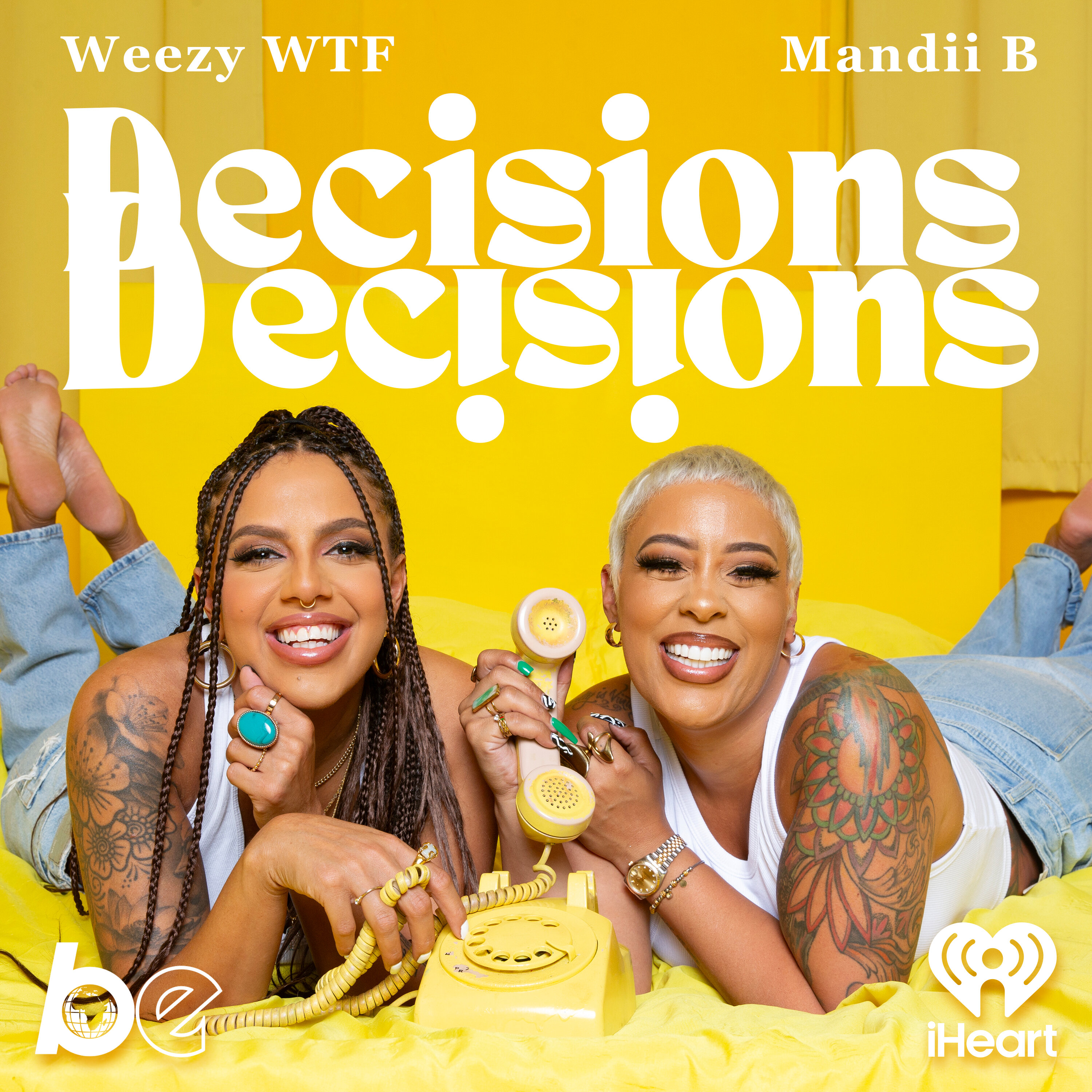
Decisions, Decisions
The Black Effect and iHeartPodcasts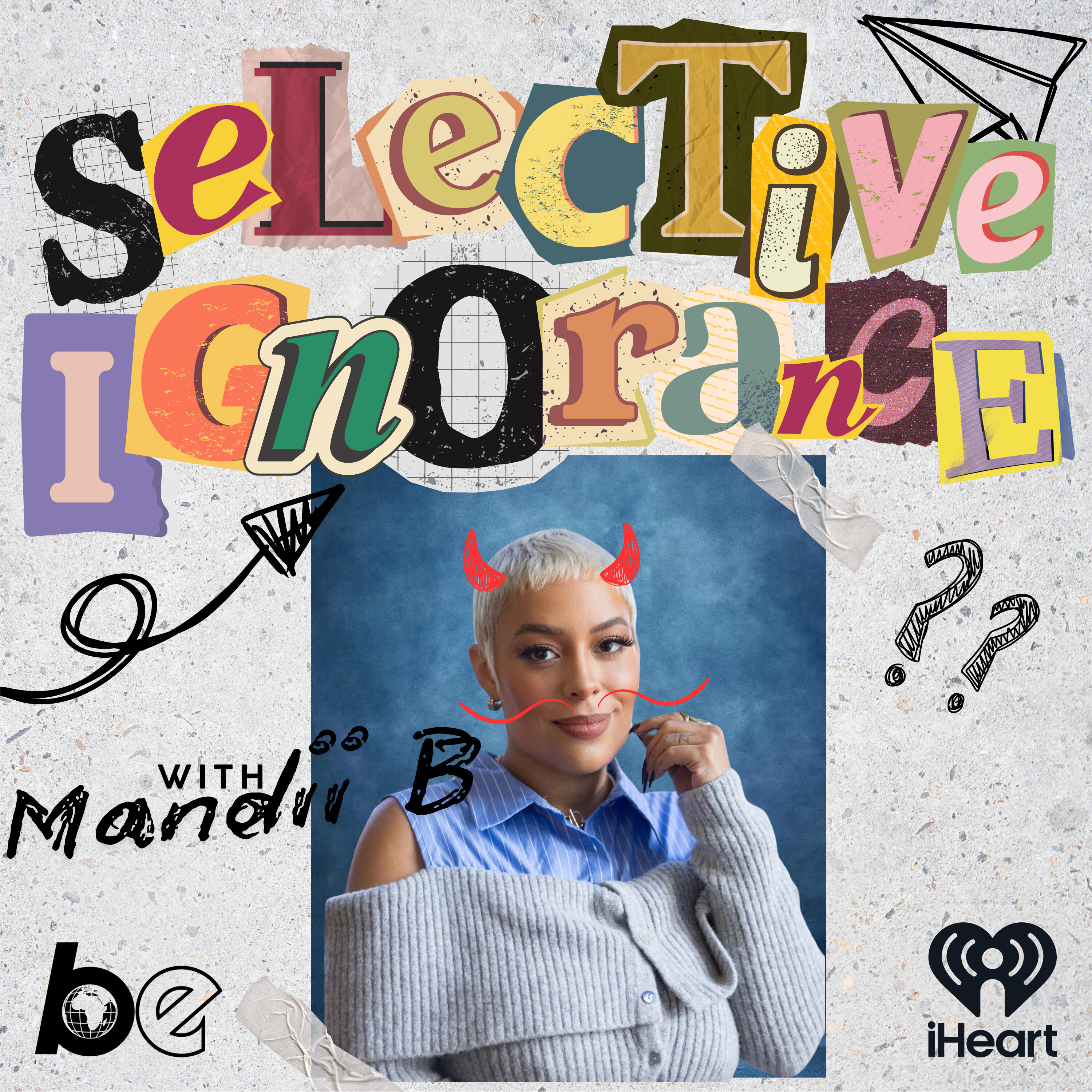
Selective Ignorance with Mandii B
The Black Effect and iHeartPodcasts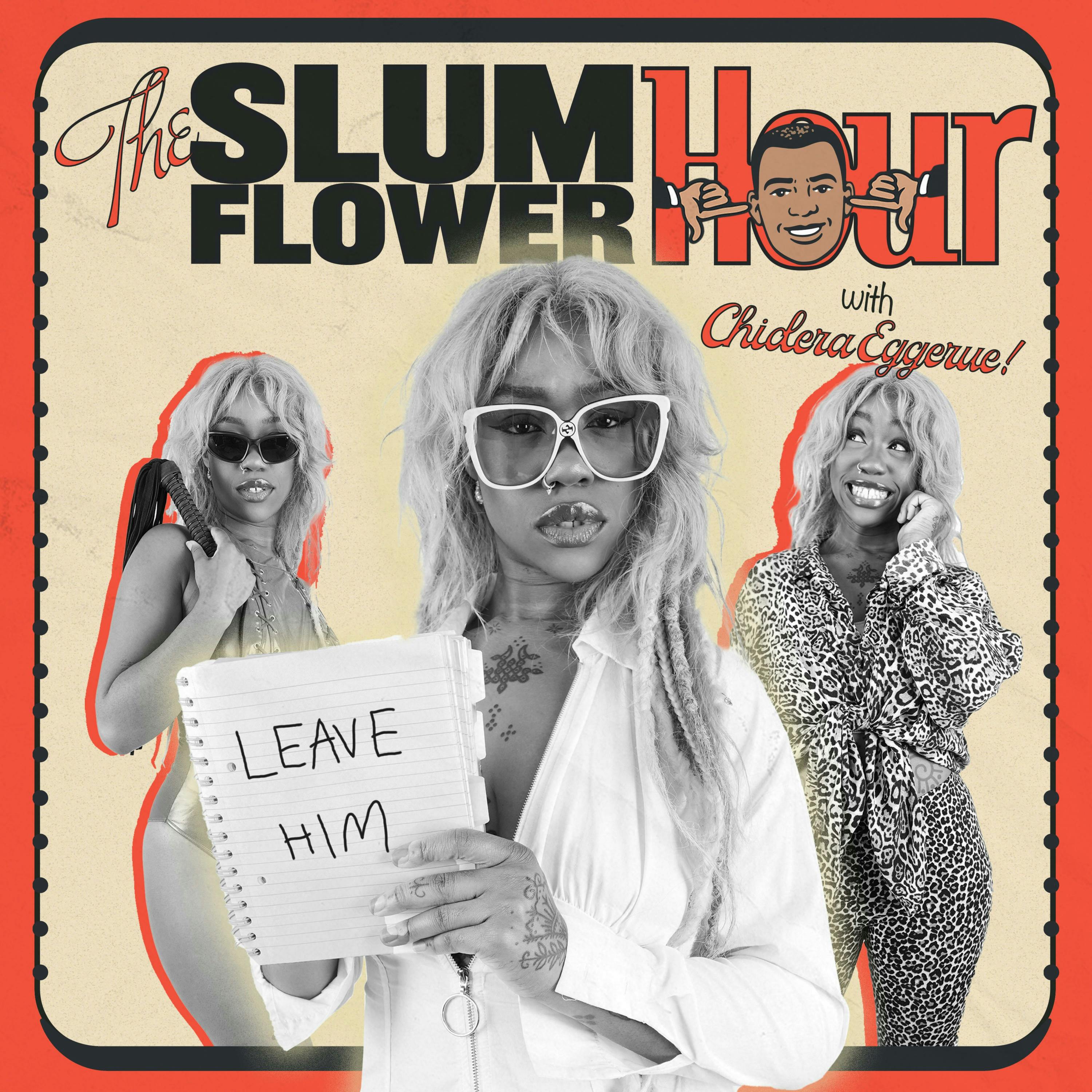
The Slumflower Hour
Chidera Eggerue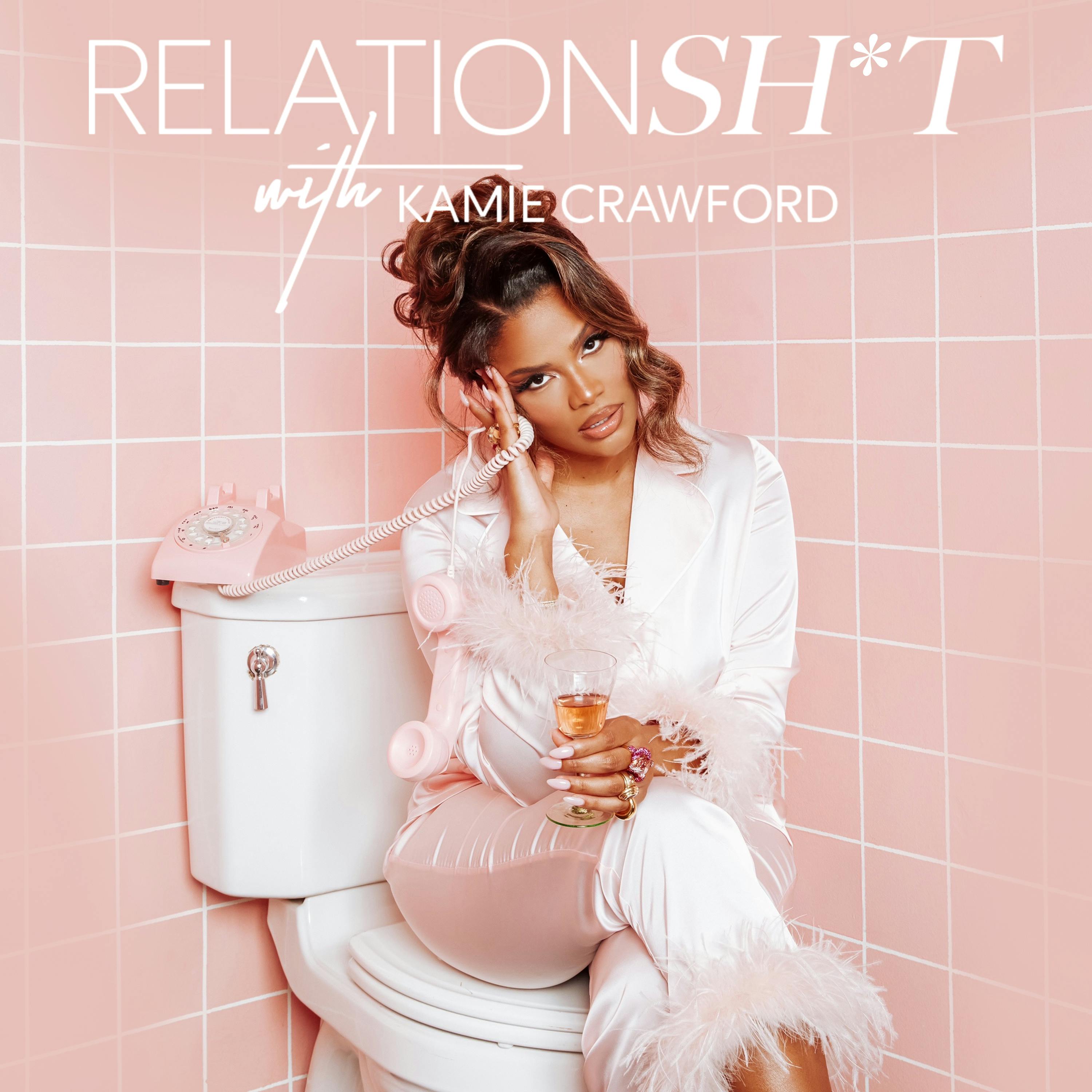
Relationsh*t with Kamie Crawford
Kamie Crawford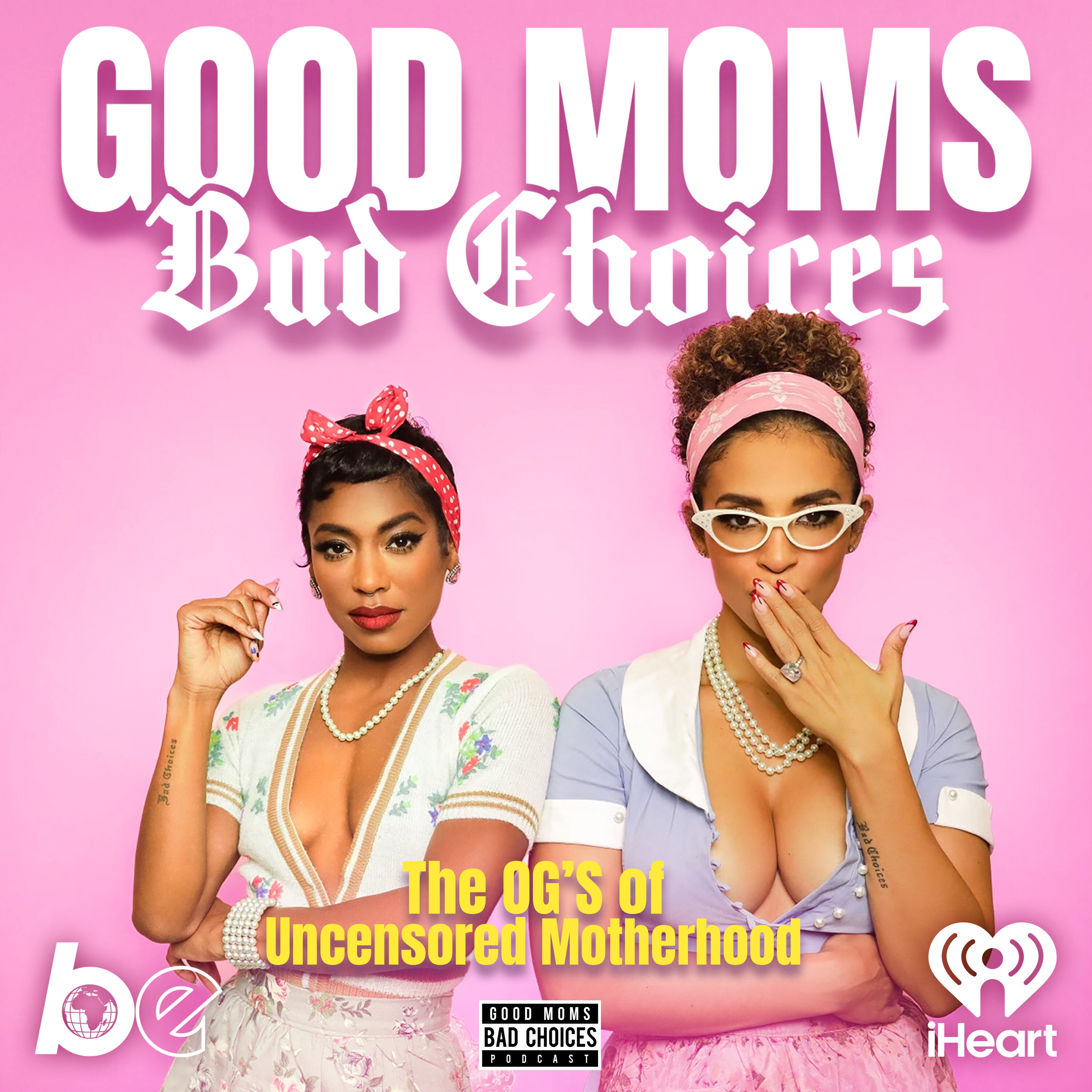
Good Moms Bad Choices
The Black Effect and iHeartPodcasts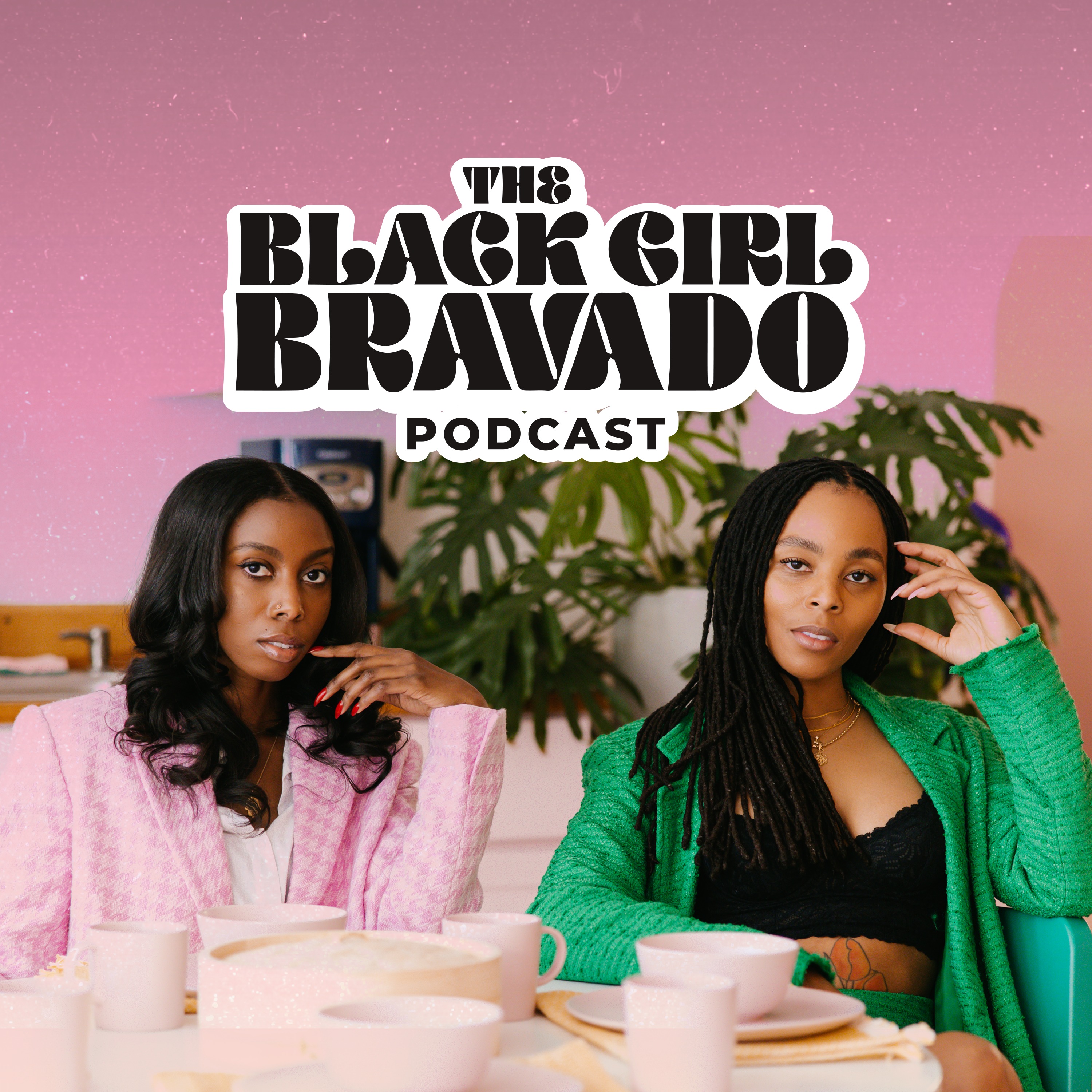
The Black Girl Bravado
Black Girl Bravado
Slay Girl Slay
Ashley Leggs
She's So Lucky
She's So Lucky
SpeakEZ Black Renaissance Podcast
Qadry Harris, M. Div.
Bobo's Void
Bobo, Donavon and MangoUpstream
Upstream
Caribbean Mystics
SpectreVision Radio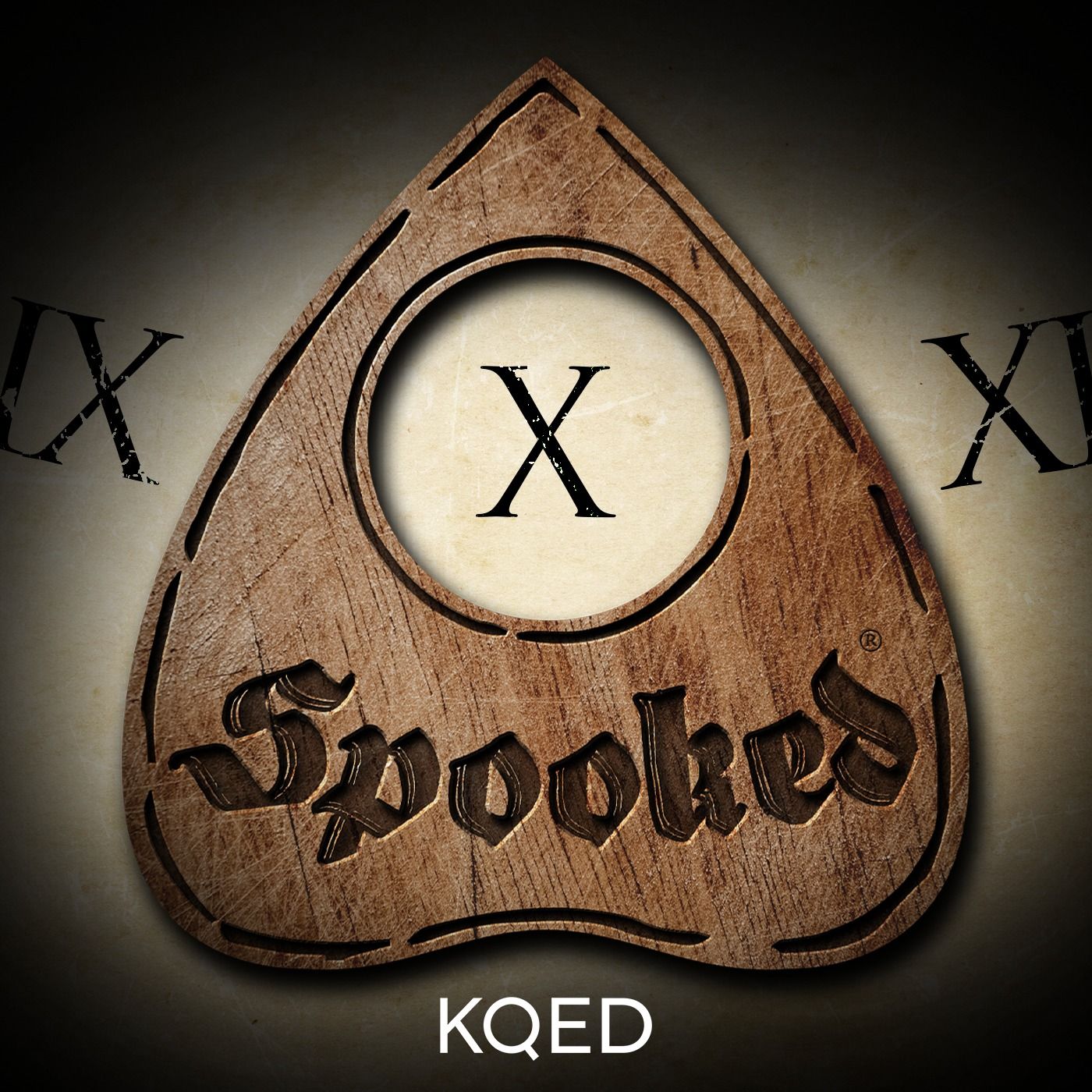
Spooked
KQED and Snap Studios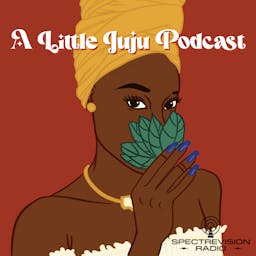
A Little Juju Podcast
SpectreVision Radio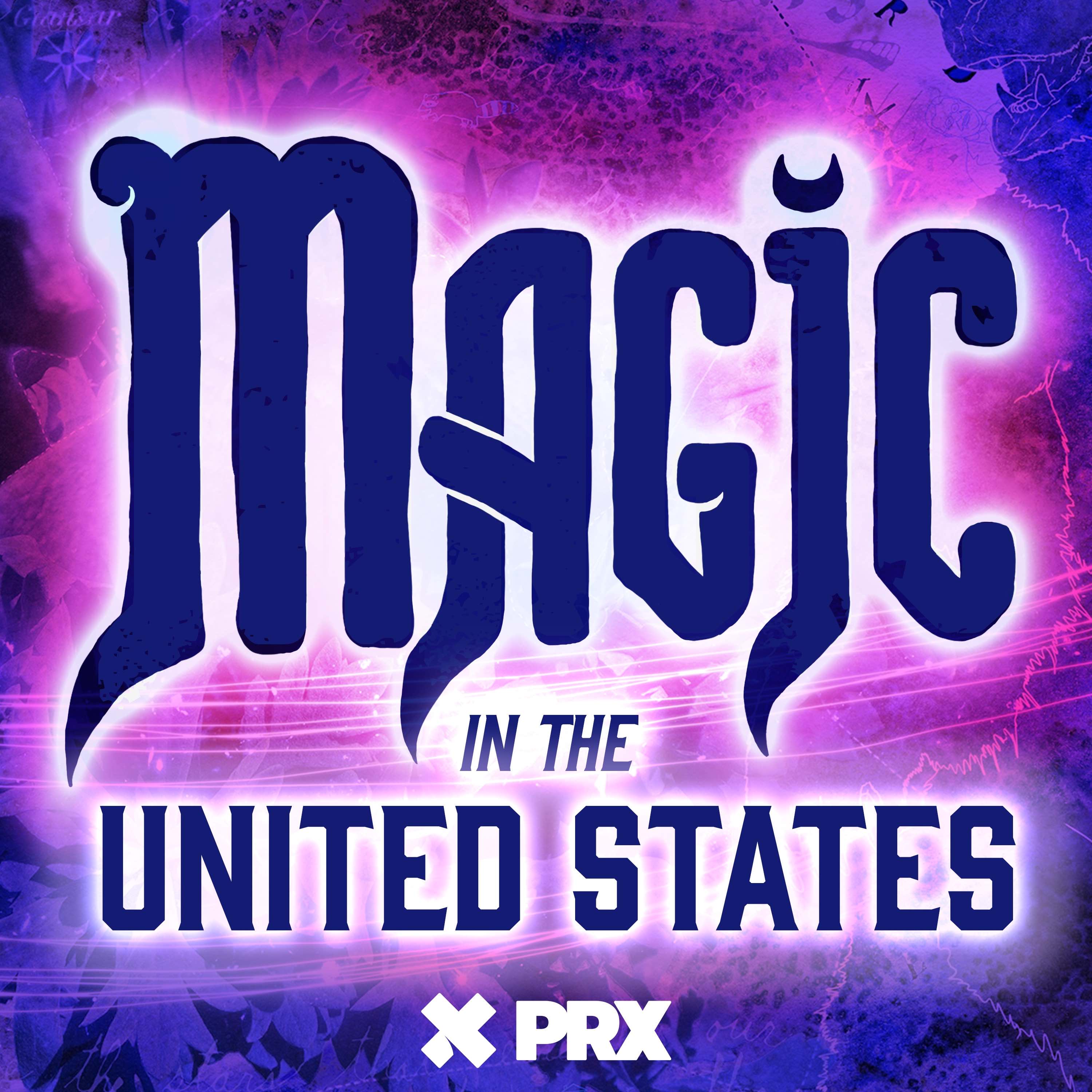
Magic in the United States
Magic in the United States
Sensual Faith Podcast with Lyvonne Briggs
Lyvonne Briggs
Our Ancestors Were Messy
Nichole Hill
CultureCon Uncut
Spotify Studios
Hold For Maintenance
Hold For Maintenance

